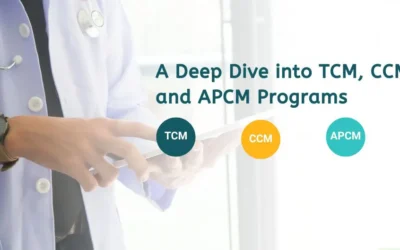
Fall Risk Assessments and Prevention for Older Patients
A fall risk assessment is a set of questions that are used to identify the possibility of the elder person falling and getting an injury due to various health, habits, and lifestyle factors. Clinicians use these tools to screen and sort patients into high-risk, moderate-risk, or low-risk for falling.
Based on the findings of a fall risk assessment, it is possible to advise on how to reduce the probability of a patient falling and the effects of the fall. This can be regarding exercise, diet, medications, home furniture, and even the kind of shoes one uses. For instance, a person may require clearing the pathways in their house or beginning exercise to gain balance.
Importance of Assessing Fall Risk in Patients
Even for the elderly, a single fall can be fatal. It is rather shocking to know that annually 30% of the population of people who are over 65 years of age fall. Although some falls are likely to cause only skin injuries, others may lead to more severe conditions such as broken hips or injury to the head, for example, subdermal hematomas. Falls are the most common cause of injury deaths among the American population of more than 65 years.
While some falls do not necessarily result in the death of the patients, they change their mobility permanently and increase their anxiety levels. Sometimes patients may even lose their capacity to perform activities, socialize, and remain independent after a fall Such losses may worsen prior chronic diseases, mental health, and future clinical outcomes. The injuries, disabilities, and fears as a result of falls complicate matters when it comes to building muscles, bone density, and regular exercising.
Falls are also linked with higher use of emergency services. Rides in an ambulance, hospitalization, and physical therapy are expenses that will be incurred by the patients which will add up to the cost of their health and can be a burden to them.
Teaching Patients Effective fall Prevention through Chronic Care Management
Chronic care management is a Medicare program created to improve the preventative treatment of individuals with two or more chronic diseases. CCM strives to build patient-healthcare-provider relationships and enhance participation in healthcare. Promoting positive clinical outcomes and patient retention.
CCM managers schedule monthly calls with the enrolled patients to inform them of the wellness objectives, medication management, social determinants of health and care coordination, and any other problems or queries the patient may have. These check-ins provide excellent chances for patient education.
A care manager can have verbal communication with the patient regarding fall risks and the possible serious consequences if they feel that the patient is at risk of falling. To further inform the patient regarding the importance of minimizing their fall risk through changes to their surroundings and their way of life they can also send the patient peer-reviewed written material.
How does Chronic Care Management Reduce Patients’ Fall Risk?
Monthly follow-up calls from a care manager present excellent opportunities to recognize and manage fall hazards in advance. Care managers can recognize risk factors and inform about the proper healthcare professionals.
For instance, when a client is pursuing exercise goals and the client has diabetes, the patient may report feeling dizzy after walking. The care manager can then ask if the patient is worried about falling or being tripped on stairs or steps. With the consent of the overseeing healthcare provider, they can develop fall risk reduction goals with the patient.
These goals can include any goal that will enable the Accessible Patient to get to the door of their home such as the construction of a ramp or a stair lift. The care team can recommend a vendor to the patient to install these and will also check on the progress of the project with the patient.
Helping patients with test requests, medicine refills, and travel plans shows that care managers have an interest in their patient’s care and encourage them to participate actively. CCM patients might be more inclined to accept the feedback and behavioral alterations regarding the fact of trusting and respecting the communicative and helpful actions.
CCM team members can make early interventions that are based on the information collected during calls due to the ongoing conversations between patients and healthcare professionals. If there is a patient who has not been for an eye checkup, they can help the patient make an appointment and thus fill the gap. This increases patient safety since it confirms the current vision prescription for the patient’s eyes and they do not fall due to poor vision.
Care managers are able to recognize factors like depression, oversleeping, recent loss of a partner. They may inquire about the patient’s frequency of activity, use of walkers or canes, adherence to medication, incontinence, chronic joint pain, and a host of other fall risk factors to find additional factors that may contribute to falls. Care managers can use all of this information in developing personalized care plans and risk reduction techniques.
How Do Annual Wellness Visits Lower Fall-Related Injuries?
Healthcare professionals can assess patients’ fall risk with AWVs and provide individualized therapies for addressing these risks. Annual wellness visits lead to discussions on patient-centered, preventive care initiatives, which can contribute to fall risks.
For instance, patients may comment that they feel dizzy when they get up after taking their drugs. You can then question them about their levels of physical activity and balance, how frequently they have to climb stairs at home, or if they use stabilizing shoes. You can then help to include measures to prevent fall risks in the patient’s wellness plan.
When your practice promotes the use of AWVs among Medicare beneficiaries, you are providing useful opportunities for treatment and lowering the fall risks among high-risk patients.
Gen By Gen Health's turn-key CCM/RPM solutions ensure compliance and health literacy – improving patient satisfaction and outcomes, increasing revenue, and decreasing staff workload.
To get in touch call us right now at (908)-864-0098 to learn more about our CCM services or you can also book a 30 min free consultation.
You may also like
The Power of Patient Engagement in Driving Better Outcomes
Using patient engagement strategies requires intentional action, but the benefits are significant. People engaged in their care usually follow care plans, control their chronic health problems well, and stay in touch with their doctors. When you start focusing on...
Advance Primary Care Management (APCM) and Who Can Bill For It
Advanced Primary Care Management (APCM), which started in 2025, is the latest care management program from CMS. Unlike older care management plans, it supports every Medicare beneficiary, irrespective of how many chronic conditions they have. As APCM is just starting,...
A Deep Dive into TCM, CCM, and APCM Programs
Transitional Care Management (TCM) is a service that allows Medicare to pay for help given to a person transitioning from a hospital to their home. TCM strives to prevent patients from being readmitted in the first 30 days after they leave the hospital. At this point,...



